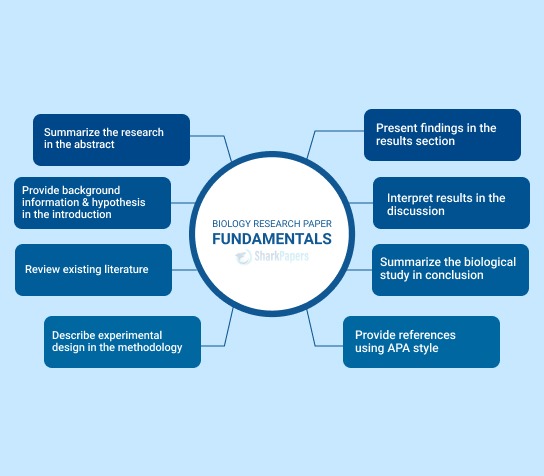How to Write a Research Paper in Psychology: Expert Tips
How to Write a Research Paper in Psychology Writing a psychology research paper may be both difficult and very rewarding. Within the broad and varied discipline of psychology, it enables you to investigate subjects that pique your interest.
Writing a well-researched paper necessitates meticulous organization, a clear structure, and a thorough comprehension of the research method as well as the particular issue at hand, regardless of whether you’re examining human behavior, cognitive processes, or societal factors.
1. Understanding the Basics of a Psychology Research Paper
A psychology research paper typically involves studying a psychological phenomenon and reporting the results in a formal academic structure. Your paper will reflect the scientific process of inquiry, including the formulation of a hypothesis, literature review, research methods, data collection, and analysis. The aim is to communicate your findings in a clear, coherent manner while adhering to established academic standards.
The key components of a psychology research paper are as follows:
- Introduction – This section introduces the research problem, the context of the study, and the hypothesis.
- Literature Review – This is a review of previous studies related to your topic.
- Methodology – Describes the research design, participants, materials, and procedures used in your study.
- Results – Presents the data collected and any statistical analyses.
- Discussion – Interprets the findings, discusses limitations, and suggests areas for future research.
- Conclusion – A brief summary of your findings and their implications.

2. Choosing a Research Topic in Psychology
The first and perhaps most crucial step in writing your psychology research paper is selecting a topic. Your choice of topic will significantly influence the direction of your paper, so it’s essential to pick something both interesting and feasible.
Tips for Choosing a Research Topic:
- Narrow it down: Psychology is a vast field with numerous subfields. Whether you choose cognitive, clinical, developmental, or social psychology, make sure your topic is specific. For example, instead of choosing “stress,” focus on “the impact of social media on stress levels among adolescents.”
- Relevance: Choose a topic that is relevant to current psychological debates or research. A topic that reflects real-world issues or recent trends in psychology will make your paper more engaging.
- Your interests: Your topic should be something you are genuinely interested in. This passion will come through in your writing and make the process more enjoyable.
3. Conducting a Thorough Literature Review
Once you’ve chosen your topic, the next step is conducting a literature review. The literature review is a critical component of any research paper. It involves summarizing existing research on your chosen topic, identifying gaps in the current literature, and justifying the need for your study.
Steps for Conducting a Literature Review:
- Search for relevant sources: Use academic databases such as JSTOR, PubMed, Google Scholar, and PsycINFO to find peer-reviewed journal articles, books, and other scholarly sources.
- Summarize key findings: As you read, take notes on key findings, methodologies, and conclusions. Summarize these in your own words.
- Identify gaps in research: Look for areas that have not been fully explored. These gaps provide an opportunity for your research to contribute new knowledge.
- Analyze and critique: Don’t just summarize studies—critique them. Discuss the strengths and weaknesses of previous research and how it relates to your research question.
4. Developing a Hypothesis and Research Questions
In psychology, a research paper typically involves testing a hypothesis—a testable prediction about the relationship between variables. Based on your literature review, you should be able to identify a gap in the research that your study will address. This will help you formulate a clear hypothesis or research question.
Tips for Developing a Hypothesis:
- Be specific: A good hypothesis is specific and testable. For example, instead of “Social media causes stress,” try “Increased daily social media use is positively correlated with higher stress levels among teenagers.”
- Ground it in theory: Your hypothesis should be based on existing theories or frameworks in psychology. Use the literature review to identify relevant theories and model your hypothesis around them.
5. Designing the Methodology
Your methodology section is critical as it outlines how you will conduct your research. The methodology should be detailed enough that someone else could replicate your study based on the information you provide.
Key Elements of a Research Methodology:
- Participants: Who will participate in your study? Consider age, gender, demographics, and any specific criteria for inclusion or exclusion. The size of your sample should also be discussed.
- Materials and instruments: What tools will you use to collect data? For example, questionnaires, surveys, tests, or psychological scales.
- Procedure: This describes the steps you will take to conduct your study. What will participants do? Will there be a control group? How will you ensure ethical considerations are met?
- Ethical considerations: Ensure that your study follows ethical guidelines, such as informed consent, confidentiality, and minimizing harm to participants.
6. Collecting Data and Analyzing Results
After collecting your data, it’s time to analyze it. Depending on your research design, you may analyze qualitative or quantitative data.
Tips for Data Analysis:
- Quantitative data: Use statistical methods to analyze your data. Tools like SPSS, R, or Excel are commonly used to perform analyses such as t-tests, ANOVA, correlation, and regression analysis.
- Qualitative data: If you collected qualitative data (e.g., interview transcripts), you will need to perform a thematic analysis. Identify recurring themes or patterns in the responses.
- Visualize data: Present your data clearly through tables, graphs, and charts to make it easier for readers to interpret.
7. Writing the Paper: Structuring the Research Paper
Now that you’ve gathered and analyzed your data, it’s time to write your research paper. Here’s how you can organize the structure of your paper:
- Title: Your title should be concise and reflect the main idea of your research.
- Abstract: Write a brief summary of your study, including the research question, methodology, results, and conclusion. Aim for 150-250 words.
- Introduction: Introduce the topic, explain why it is important, provide a brief overview of the literature, and state your hypothesis or research question.
- Literature Review: Present your findings from the literature review, highlighting gaps in the research.
- Methodology: Explain the methods you used to collect and analyze data, including the participants, materials, and procedure.
- Results: Present your data in a clear and organized manner. Include tables, graphs, or charts as needed.
- Discussion: Interpret your findings, explain their implications, and compare them to previous research. Address limitations of your study and suggest future research directions.
- Conclusion: Summarize the key points of your paper and restate the significance of your findings.
- References: List all the sources you’ve cited in APA or the appropriate citation style for your field.
8. Revising and Editing the Paper
Once you’ve written the first draft of your paper, it’s time to revise and refine it. Editing ensures that your ideas are clearly presented and your writing is polished.
Steps for Revising and Editing:
- Check for clarity and coherence: Ensure that your ideas flow logically and that your arguments are clearly presented.
- Proofread: Check for grammatical errors, spelling mistakes, and punctuation issues.
- Ensure proper formatting: Follow the required formatting style, whether it’s APA, MLA, or another citation style.
- Seek feedback: Ask peers, professors, or mentors to review your paper and provide feedback.

9. Conclusion
Writing a research paper in psychology is an intricate and rewarding process that allows you to explore and contribute to the understanding of human behavior. By following the steps outlined in this guide—choosing an interesting topic, conducting thorough research, designing a strong methodology, analyzing data, and writing clearly and concisely—you can craft a paper that showcases your skills and knowledge as a psychology student. Don’t forget to revise your work and seek feedback to ensure it’s polished before submission.
FAQ
Q1: How long should my psychology research paper be?
The length of your research paper will depend on your professor’s requirements. Typically, psychology research papers range from 8-20 pages. Make sure to clarify the length requirements and aim to be concise while including all necessary information.
Q2: What is the difference between qualitative and quantitative research in psychology?
Quantitative research involves collecting numerical data that can be analyzed using statistical methods. Qualitative research involves non-numerical data, such as interviews or observations, which are analyzed thematically to identify patterns and insights.
Q3: Can I use online sources in my psychology research paper?
While online sources can be useful, it’s essential to ensure that the sources are credible and scholarly. Peer-reviewed journal articles, books, and academic databases should be prioritized over general websites or blogs.
Q4: How do I avoid plagiarism in my psychology research paper?
To avoid plagiarism, always properly cite any sources you reference in your paper, whether you’re quoting directly or paraphrasing. Use APA style (or the appropriate citation style) for citations and references.
Q5: How do I create a strong thesis statement for my psychology research paper?
Your thesis statement should clearly express the main argument or purpose of your paper. It should be specific and address the research question you’re investigating. It should also be debatable, as the paper will aim to support or refute the thesis through evidence.
Read More :
















